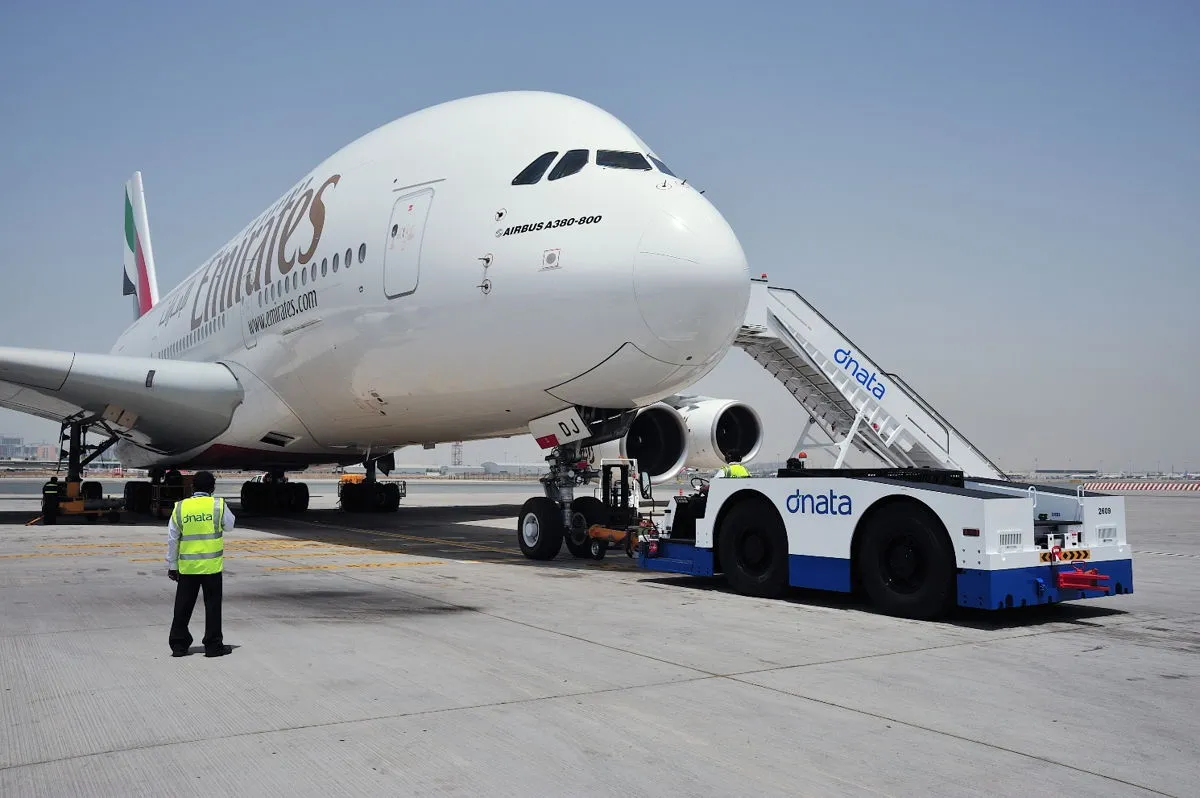
Last A380 being assembled as hundreds remain grounded
May 13, 2020

The final Airbus A380 aircraft has been assembled in a poignant moment for the aviation industry, as hundreds of these iconic double-decker planes remain grounded due to a combination of reduced demand and the impact of the COVID-19 pandemic. Once a symbol of luxury and long-haul travel, the A380's production halt reflects significant shifts in airline strategies, with many carriers opting for smaller, more fuel-efficient models. As the last unit prepares for delivery, the future of the A380 remains uncertain, leaving enthusiasts and industry experts to reflect on its legacy in the skies.
The Airbus A380, once hailed as a marvel of modern aviation, is reaching the end of its production line. With the last A380 being assembled, the aviation industry is witnessing a significant shift, especially as hundreds of these giants remain grounded. In this article, we will delve into the implications of this event, explore current statistics, and analyze the future of air travel in the context of the A380's legacy.
The End of an Era for the Airbus A380
The Airbus A380 was introduced in 2005, designed to revolutionize long-haul air travel with its unprecedented capacity and comfort. However, as the aviation landscape changes, demand for such large aircraft has diminished. The pandemic exacerbated this trend, leading to a significant number of A380s being grounded. As airlines pivot to more efficient, smaller aircraft, the final assembly of the A380 marks a poignant moment in aviation history.
Current A380 Fleet Status
As of now, a substantial number of Airbus A380s remain inactive, with airlines grappling with fluctuating travel demand. The table below highlights the current status of the A380 fleet worldwide:
| Airline | Total A380s | Active A380s | Grounded A380s |
|---|---|---|---|
| Emirates | 115 | 80 | 35 |
| Qantas | 12 | 5 | 7 |
| Lufthansa | 14 | 6 | 8 |
| Air France | 10 | 4 | 6 |
| Singapore Airlines | 24 | 12 | 12 |
This table illustrates the significant number of A380s that are currently grounded, reflecting a broader trend within the airline industry. Airlines are increasingly focusing on more efficient models that can adapt to changing passenger demand and operational costs.
Factors Contributing to Grounding
Several factors have contributed to the grounding of a large portion of the A380 fleet:
- Shift in Consumer Preferences: Post-pandemic travel habits show a preference for direct flights and smaller aircraft, leading to reduced demand for large-capacity planes.
- Operational Costs: The A380 is costly to operate, with higher fuel consumption compared to newer, more efficient aircraft.
- Airline Restructuring: Many airlines are reevaluating their fleets and routes, resulting in the retirement of older models, including the A380.
The Future of the A380
As the last A380 is assembled, the future of this iconic aircraft looks uncertain. While some airlines are committed to keeping their A380s in service for the foreseeable future, others may look to phase them out entirely. The A380's ability to provide a unique passenger experience, with spacious cabins and amenities, could keep it relevant in specific markets, particularly for high-demand routes.
Impact on the Aviation Industry
The cessation of A380 production signifies a broader shift in the aviation industry. Here are some of the potential impacts:
- Market Dynamics: The reduction in fleet size may lead to changes in ticket pricing and availability, particularly on routes previously served by the A380.
- Innovation in Aircraft Design: As airlines prioritize efficiency, manufacturers may focus on developing smaller, more versatile aircraft that meet the evolving needs of the market.
- Environmental Considerations: With a growing emphasis on sustainability, the aviation industry is increasingly investing in environmentally friendly technologies, which could influence future aircraft design.
Conclusion
The assembly of the last Airbus A380 marks a significant milestone in aviation history. While the aircraft will always be remembered for its grandeur and innovation, the current landscape suggests that the future of air travel is moving in a different direction. As airlines adapt to changing demands and focus on efficiency, the legacy of the A380 will undoubtedly shape the next generation of aircraft design and passenger experience.
As we bid farewell to the A380, the aviation industry stands at a crossroads, poised to embrace new technologies and strategies that will define the future of travel.
Related Articles

Explore Thailand: The Best Islands to Visit for Paradise, Adventure, and Relaxation

The Ultimate Guide to the Best Islands in Thailand for Your Next Getaway

Do babies need passports? How to get a passport for a newborn

How to get a U.S. passport fast: here’s how to expedite the process

What is Mobile Passport Control: 5 reasons why you should use it

SENTRI vs. Global Entry: A detailed guide

Do you need a passport to go to the Bahamas? Let’s find out

Do you need a passport to go to Mexico? A detailed guide

Do you need a passport to go to Canada? We got the answer

Do You Need a Passport for a Cruise: An Essential Travel Guide

Booster Seat Requirements: All the Rules to Follow in Your Rental Car

What Are the World’s Most Powerful Passports, and How Does Yours Rank?

How to Take a Passport Photo at Home: A Helpful Guide

You've got to have heart! Southwest's new livery

Your opinion: Should water be free on low cost carriers?

Young women bolder than guys as solo travellers
